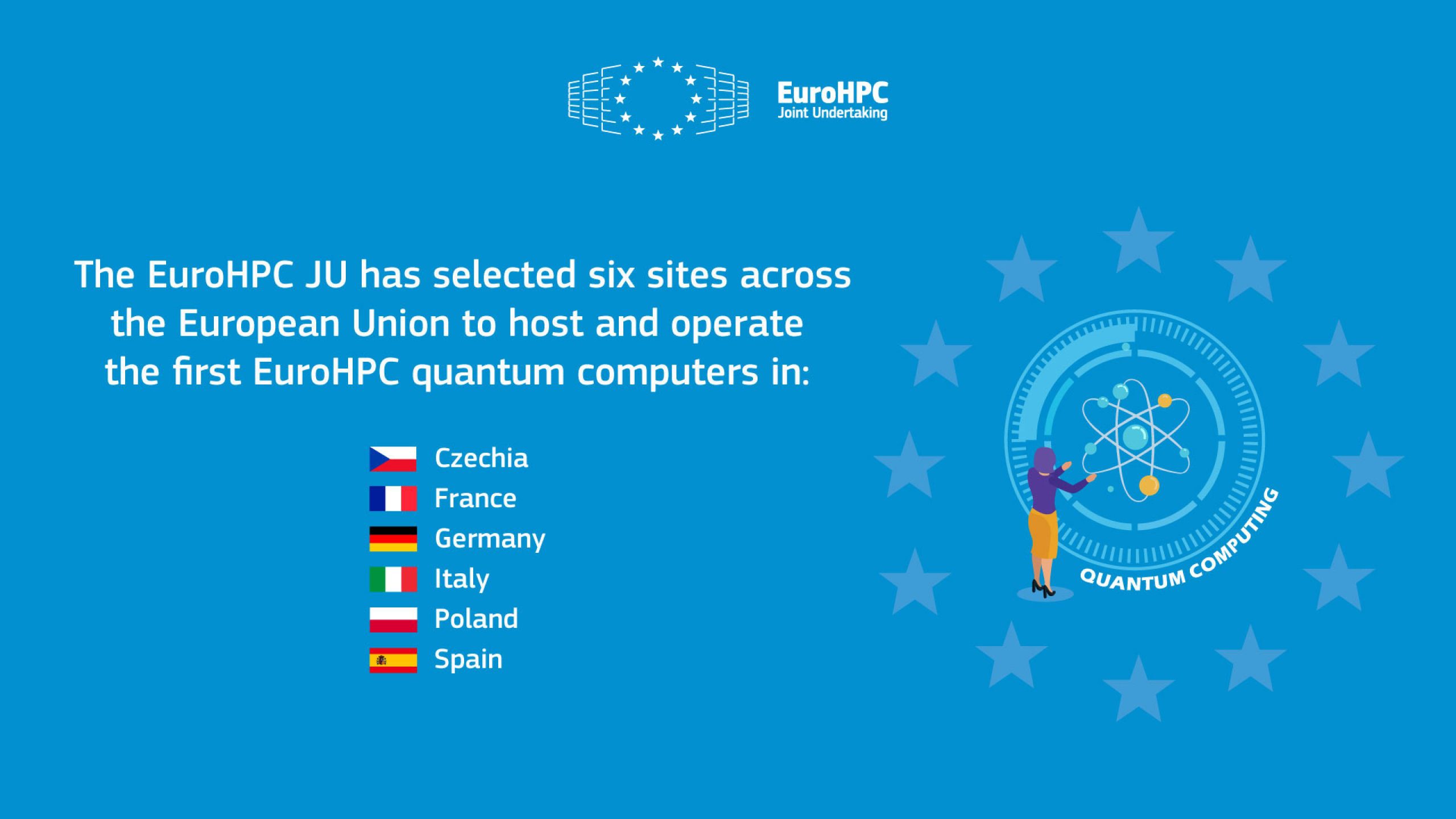The European High-Performance Computing Joint Undertaking has announced the Czech Republic, Germany, Spain, France, Italy, and Poland as the six hosting sites for the “First European Quantum Computers.” The technology, expected to be ready in late 2023, will be integrated into current supercomputers.
“With pooled resources and know-how, we can take leadership in a field that is essential for the future of our digital society,” .
Margrethe Vestager, executive vice-president for Europe Fit for the Digital Age
These new quantum computers are part of a bigger plan to integrate quantum technology into Europe’s supercomputing infrastructure. They will be offered primarily for R&D purposes to a diverse spectrum of European users, regardless of where they are situated in Europe, including scientific communities, businesses, and the public sector. Nonetheless, academic researchers and industries in Europe will be able to access these computers using a fraction of the resources required by conventional computers.
Capabilities Of The Supercomputer
The devices can support a wide set of applications with industrial, scientific, and societal implications for Europe, including:
- Solving challenging logistical and scheduling issues to help businesses save time and money.
- Faster and more efficient drug development via the production of a “digital twin” of a human body upon which virtual drug tests can be performed.
- Creating and testing novel materials in a virtual environment, such as aeroplane polymers, automobile catalytic converters, solar cells, or room-temperature superconductors that can store energy indefinitely.
According to the Commission, “these new quantum computers are a step towards helping us reach our Digital Decade goals of having our first computer with quantum acceleration by 2025, as well as being on the cutting edge of quantum capabilities by 2030.” The chosen proposals ensure a diversity of quantum technologies and architectures, allowing European consumers access to a wide range of quantum technologies.
There are several essential computing tasks that traditional supercomputers cannot solve in industrial and research circles. Such complicated tasks include traffic flow optimization and fundamental numerical problems in chemistry and physics to create new medications and materials.
This is where quantum computing can help pave the way for new solutions. Incorporating quantum computing capabilities into HPC applications will allow scientific breakthroughs, R&D, and new avenues for industrial innovation.
Funding Quantum Computers in Europe
The new quantum computers will be partly supported by the EuroHPC JU budget derived from the Digital Europe Programme (DEP) and partly by donations from EuroHPC JU member countries. The European Union will contribute half the anticipated expenditure of over €100 million, with the remaining 17 nations participating in the European High-Performance Computing Joint Undertaking (EuroHPC JU).
The specific financing arrangements for each system will be reflected in soon-to-be-signed hosting agreements.
According to Rodriguez, the pledged €100 million can only be a significant push if current national quantum programs support it. This is the case with most chosen nations, “although with enormous disparity.”
For instance, German funding for quantum research has reached €2 billion, whereas Spanish funding has reached €60 million.
Background
EuroHPC JU is a financing organization established in 2018 to coordinate European nations’ efforts and resources to establish Europe as a global supercomputing powerhouse. The EuroHPC JU Regulation, which the Council just adopted, will bring an additional investment of €7 billion.
The six sites for the quantum computers were chosen in response to a request for hosting and operating the European quantum computers incorporated into the HPC supercomputer. The Commission also intends to establish Centres of Excellence for Science and Industry in academic and industry application situations.
These centres will be a reference for academic and industrial quantum applications, providing services, support, and libraries to organizations like the current High-Performance Computing Centres of Excellence.


